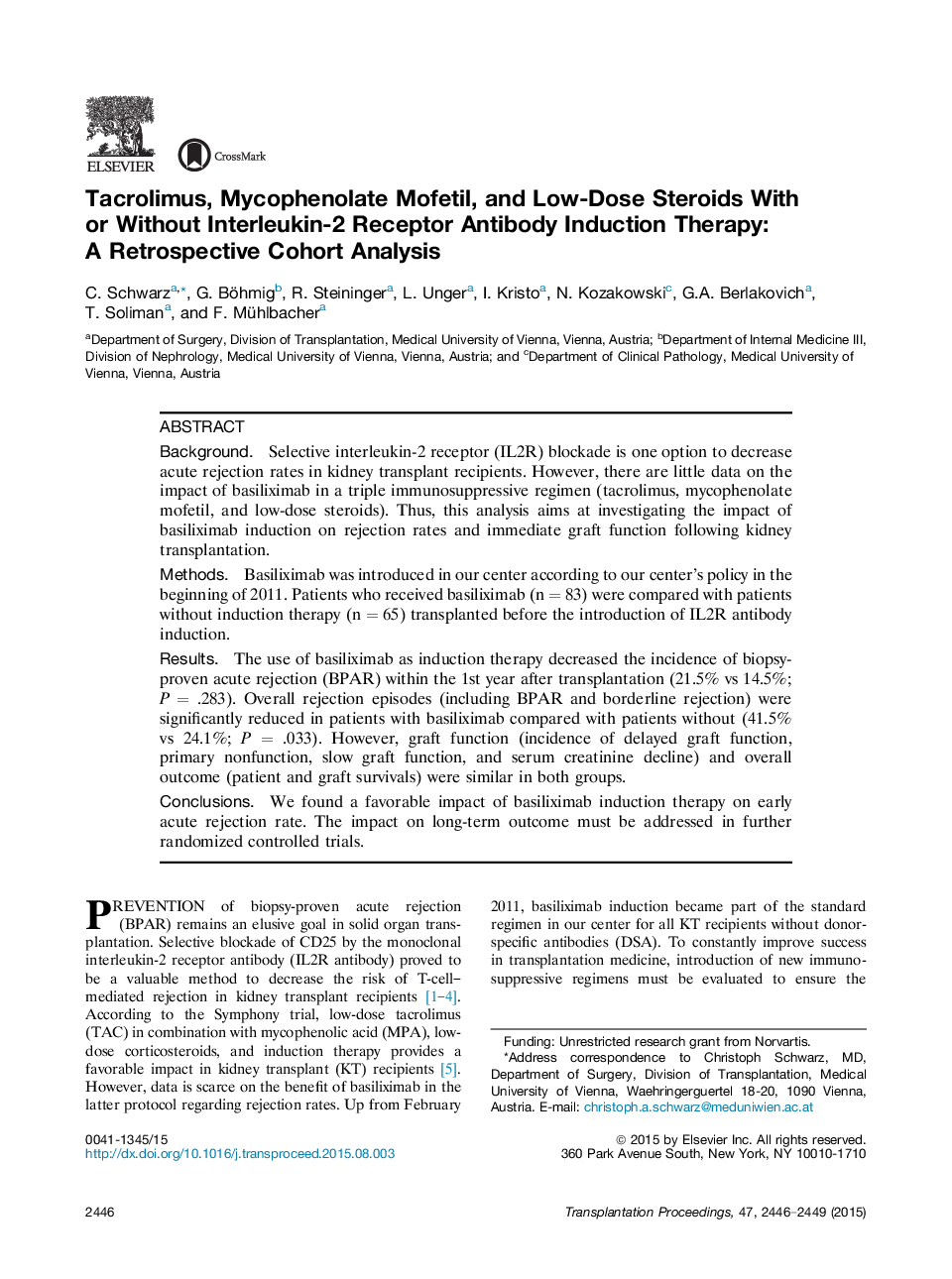| Article ID | Journal | Published Year | Pages | File Type |
|---|---|---|---|---|
| 4257020 | Transplantation Proceedings | 2015 | 4 Pages |
BackgroundSelective interleukin-2 receptor (IL2R) blockade is one option to decrease acute rejection rates in kidney transplant recipients. However, there are little data on the impact of basiliximab in a triple immunosuppressive regimen (tacrolimus, mycophenolate mofetil, and low-dose steroids). Thus, this analysis aims at investigating the impact of basiliximab induction on rejection rates and immediate graft function following kidney transplantation.MethodsBasiliximab was introduced in our center according to our center's policy in the beginning of 2011. Patients who received basiliximab (n = 83) were compared with patients without induction therapy (n = 65) transplanted before the introduction of IL2R antibody induction.ResultsThe use of basiliximab as induction therapy decreased the incidence of biopsy-proven acute rejection (BPAR) within the 1st year after transplantation (21.5% vs 14.5%; P = .283). Overall rejection episodes (including BPAR and borderline rejection) were significantly reduced in patients with basiliximab compared with patients without (41.5% vs 24.1%; P = .033). However, graft function (incidence of delayed graft function, primary nonfunction, slow graft function, and serum creatinine decline) and overall outcome (patient and graft survivals) were similar in both groups.ConclusionsWe found a favorable impact of basiliximab induction therapy on early acute rejection rate. The impact on long-term outcome must be addressed in further randomized controlled trials.
